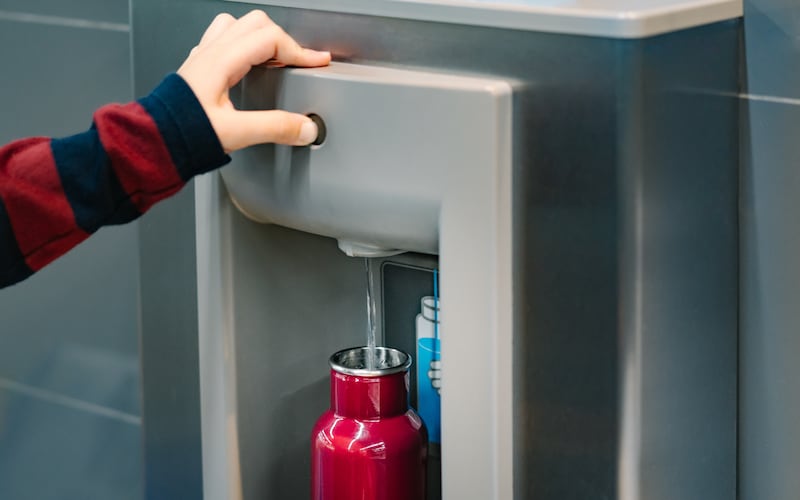Increasing access to water in schools helps children stay more hydrated and less likely to be overweight, according to a new study published in the journal Pediatrics earlier this month.
Dr. Asher Rosinger, associate professor of biobehavioral health and director of the Water, Health and Nutrition Lab at Pennsylvania State University, told CNN, “I always tell people, drink water first — as that will reduce a person’s thirst and likelihood that they will drink sugary drinks.”
“One of my papers showed that children who do not drink water on a given day consume twice the number of calories from sugary drinks as children that drank water,” added Rosinger, who was not involved in the study.
In the California Bay Area, 18 schools participated in the study. Half of the schools received water dispensers, water-bottle filling stations, cups, bottles and “educational materials about how important it is to drink enough water,” while the other nine schools received no materials, said CNN.
Fifteen months later, results showed that the schools that made no changes had about seven times more prevalence of overweight students compared to the schools that had received more access to drinking water, according to the study.
Lead study author Dr. Anisha Patel, professor of pediatrics at Stanford University in California, told CNN, “The study was conducted in racially and ethnically diverse and low-income elementary schools, where students are at most risk for chronic health problems, including overweight and obesity.”
What is the recommended water intake for a child?
The Children’s Hospital of Orange County provides a table that shows the amount of water a child should drink depending on their age.
“Children should drink the number of 8-ounce cups of water equal to their age, with a minimum of 64 ounces of water for children over the age of 8,” the hospital’s website said.
The Centers for Disease Control and Prevention said increased access to drinking water in school is crucial since “1 in 5 children and adolescents do not drink any plain water during the day and about half of school-aged children are underhydrated.”
The CDC said drinking plain water can benefit children in many ways, including:
- Improved memory and attention.
- Decreased risk of some chronic diseases.
- Help with weight management.
What are the signs that someone is dehydrated?
Some symptoms of dehydration include dry mouth and tongue, less-frequent or dark colored urine, dizziness, confusion and fatigue, according to the Mayo Clinic.
The Mayo Clinic suggests a visit to the doctor if you’ve been experiencing dehydration symptoms as well as diarrhea for more than 24 hours, have bloody or black stool, have trouble keeping fluids down or are feeling more disoriented or sleepy than usual.


